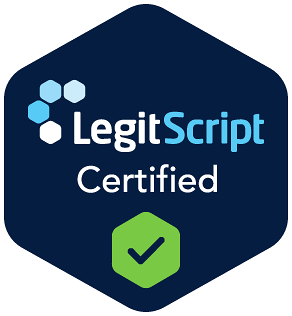
Struggling with ADHD and Addiction? We Can Help
If your teenager is living with both ADHD and addiction, you’re not alone, and help is available. Unfortunately, far too often, teens suffering from ADHD experiment with drugs or alcohol either on their own or in social settings, sometimes due to peer pressure or sometimes as a form of self-medication. The combination of ADHD and substance abuse, when left unaddressed and not treated right away, can lead to serious and detrimental consequences, especially when it comes to their development, both physically and mentally.
Whether your teen is experimenting with drugs or struggling with a long-term substance use issue, their ADHD symptoms can make recovery more complicated. But with the right support system, healing is possible. At Ohio Center for Adolescent Wellness, we specialize in dual diagnosis treatment, offering personalized, evidence-based care that addresses both conditions simultaneously.
Understanding the Link Between ADHD and Teen Substance Use
The connection between ADHD and addiction is both strong and well-documented. The impulsivity, emotional dysregulation, and difficulty with self-control associated with ADHD can all contribute to risky behaviors, particularly drug and alcohol use. In fact, teens with ADHD are significantly more likely to both experiment with substances of abuse earlier in life and do so more frequently than their peers.
There are several key reasons why this is the case:
Impulsivity and Poor Decision Making
A fairly common “symptom” of ADHD is impulsive behavior. This type of behavior can make it harder for teens to fully understand and consider the consequences of their actions, such as using drugs or alcohol. As a result, they may be more inclined to try substances of abuse on a whim, either by themselves or in social settings.
Self-Medication
As is the case with many mental health conditions, using drugs or alcohol as a form of self-medication is still far too common. Stimulants like cocaine or nicotine may temporarily help with focus, while alcohol or marijuana may be used to calm anxiety or hyperactivity. While the short-term relief may appear to be “worth it”, continued, long-term use can often spiral into a full-blown substance use disorder.
Peer Pressure and Social Struggles
ADHD can also make it difficult at times for teens to form and maintain relationships. Social rejection or bullying may lead to loneliness and low self-esteem, which in turn increases the risk of substance use. Furthermore, they may also be more inclined to experiment with drugs or alcohol as a way to fit in and be more accepted.
Delayed Brain Development
Teens with ADHD often experience delays in executive functioning and impulse control, making it harder for them to resist temptations or break patterns of substance abuse.
Co-Existing Mental Health Disorders
Those suffering from ADHD tend to also suffer from other mental health conditions, such as depression and/or anxiety. These overlapping diagnoses can compound emotional distress, making substance use feel like an easy and accessible way to cope.
Academic Struggles
While ADHD is not considered a learning disability, the symptoms of ADHD often make it more difficult for teens to be successful academically. For a teen struggling with ADHD, it’s not uncommon for them to fall behind in school, receive disciplinary action, or struggle with low motivation and concentration. These academic setbacks can diminish self-esteem and increase the likelihood of turning to substances as a form of either relief or rebellion.
Signs Your Teen May Need Help
 While being able to identify any sort of mental health disorders or substance abuse issues in teens can be difficult, early detection is critical in getting them the professional help they need.
While being able to identify any sort of mental health disorders or substance abuse issues in teens can be difficult, early detection is critical in getting them the professional help they need.
If you are concerned that your teen may be struggling with a co-occurring disorder, particularly teen addiction and ADHD, here are some of the more common signs to look for:
Behavioral Changes
- Sudden drop in grades or school performance
- Disinterest in previously enjoyed activities
- Skipping school or breaking curfew
- Angry or defiant behavior
- Increased risk-taking or legal trouble
- Secretive behavior or withdrawing from family
- Stealing money or valuables
- Lying about whereabouts or activities
Physical or Emotional Changes
- Unexplained weight loss or gain
- Bloodshot eyes, frequent nosebleeds, or other physical symptoms
- Unusual tiredness or hyperactivity
- Mood swings, anxiety, or depression
- Changes in sleep patterns or appetite
If you’ve noticed several of these signs, it may be time to seek professional help. While teen dual diagnosis is a complex issue, it is treatable with the right approach and a specialized care team like the ones found at Ohio Center for Adolescent Wellness.
What Dual Diagnosis Treatment Looks Like at Ohio Center
At Ohio Center for Adolescent Wellness, we understand that treating ADHD and addiction requires a comprehensive, integrated approach. Dual diagnosis treatment means addressing both conditions at the same time, not treating one while ignoring the other.
Our Dual Diagnosis Program Includes:
Comprehensive Evaluation
Every teen receives a full psychological and medical assessment upon entry. This includes a review of medical history, psychiatric interviews, and standardized assessments for ADHD, substance use, trauma, and other mental health conditions.
Personalized Treatment Plans
Each treatment plan is tailored to your teen’s needs, combining therapeutic approaches that address emotional health, behavioral issues, family dynamics, academic goals, and physical well-being.
Integrated Care Teams
Our multidisciplinary team includes psychiatrists, psychologists, therapists, nurses, social workers, academic advisors, and addiction counselors. This collaborative model ensures that no aspect of your teen’s well-being is overlooked.
Evidence-Based Therapies
We implement proven interventions, including:
- CBT to reshape negative thinking patterns
- DBT to build emotion regulation and distress tolerance
- Motivational Interviewing to promote treatment engagement
- Trauma-Informed Therapy to process past experiences that may drive substance use
- Family Therapy to heal relationships and support long-term recovery
Academic and Life Skills Support
Teens continue their education during treatment and receive assistance with organization, time management, and learning strategies that accommodate their ADHD challenges.
Experiential and Recreational Therapy
From art and music therapy to adventure-based activities, our teens learn to express themselves, connect with others, and find enjoyment in sober living.
Relapse Prevention Planning
Long-term recovery is a major focus. We teach teens how to identify relapse triggers, develop healthy coping strategies, and build a peer support system.
Our Approach to Treating ADHD and Addiction

Treating ADHD and substance abuse simultaneously is essential for lasting recovery. Failing to treat ADHD can result in continued impulsivity and emotional dysregulation, increasing the risk of relapse. On the other hand, treating ADHD with stimulant medication without monitoring for abuse potential can exacerbate addiction risk.
Our approach balances safety with effectiveness by providing:
Medication Management
When appropriate, we carefully introduce non-stimulant medications or controlled-use stimulant regimens under close supervision. We educate families about medication safety and evaluate for potential misuse or dependency.
Behavioral Therapy and Skill Development
Behavioral interventions are essential in treating ADHD and addiction. Our licensed therapists help teens:
- Improve focus and organization
- Manage frustration and anger
- Set goals and track progress
- Resist peer pressure and build assertiveness
- Establish daily routines that support structure and accountability
Family Education and Involvement
We believe families are a cornerstone of teen recovery. Our program offers:
- Weekly family therapy sessions
- Parent education workshops
- Support groups for caregivers
These services foster understanding, strengthen relationships, and give families the tools to support their child’s continued healing after treatment.
Aftercare and Alumni Support
Transitioning back to school and home life is a critical phase. Our aftercare services include:
- Continued therapy referrals
- Alumni meetups and check-ins
- Recovery coaching
- Ongoing access to family and academic support resources
Why Choose Ohio Center for Adolescent Wellness

When it comes to teen dual diagnosis care, we stand out for our depth, compassion, and commitment to adolescent well-being by providing:
- A Teen-Centered Program – Everything, from our curriculum to our therapy methods, is designed with the teenage brain, behavior, and emotional landscape in mind.
- Experienced and Compassionate Staff – Our team has decades of experience treating co-occurring disorders in teens, including licensed clinicians who specialize in ADHD, trauma, and addiction.
- Safe, Healing Environment – Our campus provides a peaceful, structured environment where teens can feel safe expressing themselves.
- Academic Continuity – We help teens maintain academic progress through certified teachers, tutors, and education plans that support ADHD learning styles.
- A Proven Track Record – We’ve helped hundreds of teens overcome ADHD and substance abuse, and our outcomes consistently show improved emotional regulation, stronger family bonds, increased academic success, and long-term sobriety.
Ready to Take the First Step?
 If your teen is struggling with ADHD and addiction, don’t wait. The earlier they receive specialized help, the better the outcome for their health, relationships, and future.
If your teen is struggling with ADHD and addiction, don’t wait. The earlier they receive specialized help, the better the outcome for their health, relationships, and future.
Ohio Center for Adolescent Wellness is here to walk alongside your family with compassion, expertise, and unwavering support. Contact us today to learn more about getting your teen the help they need



